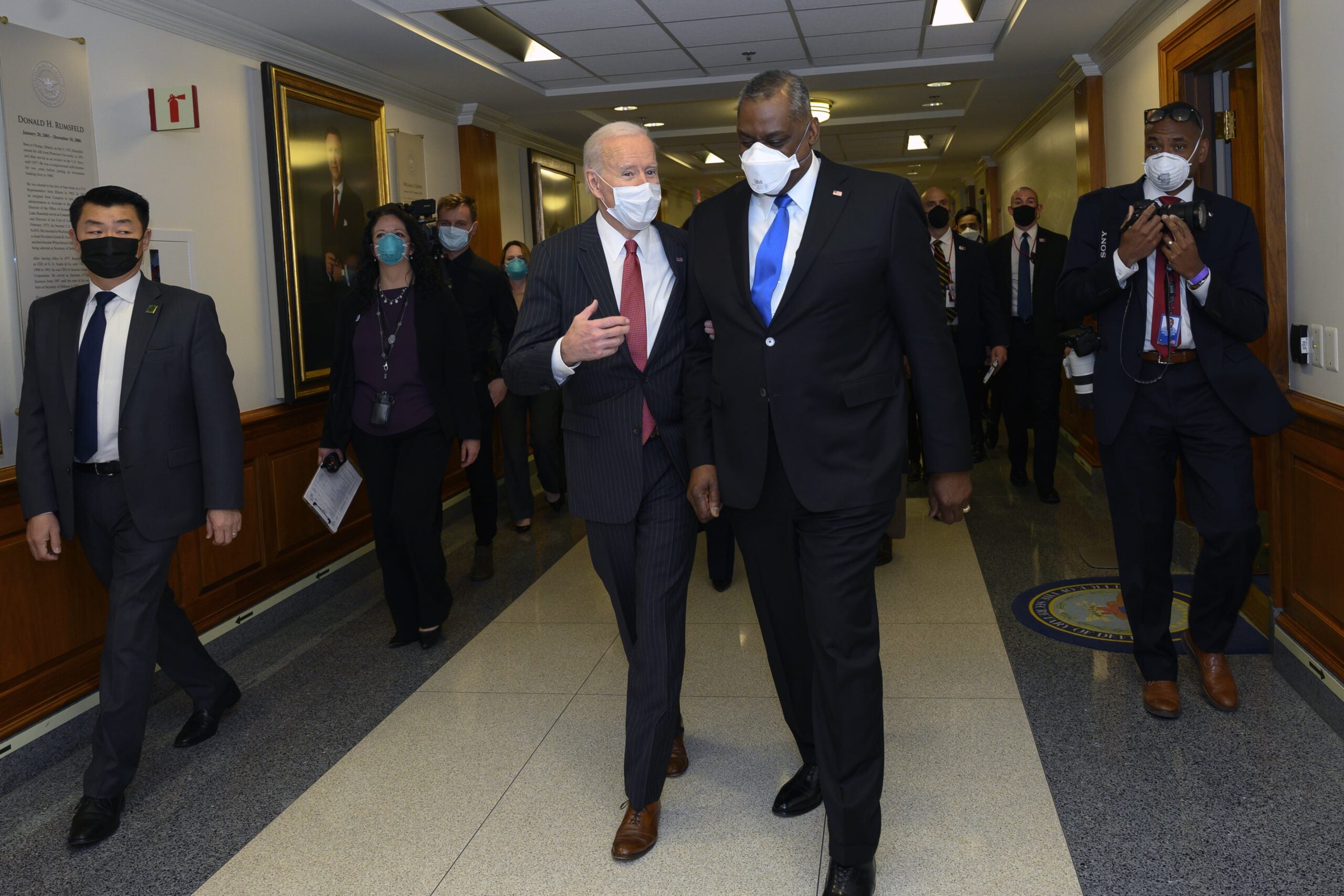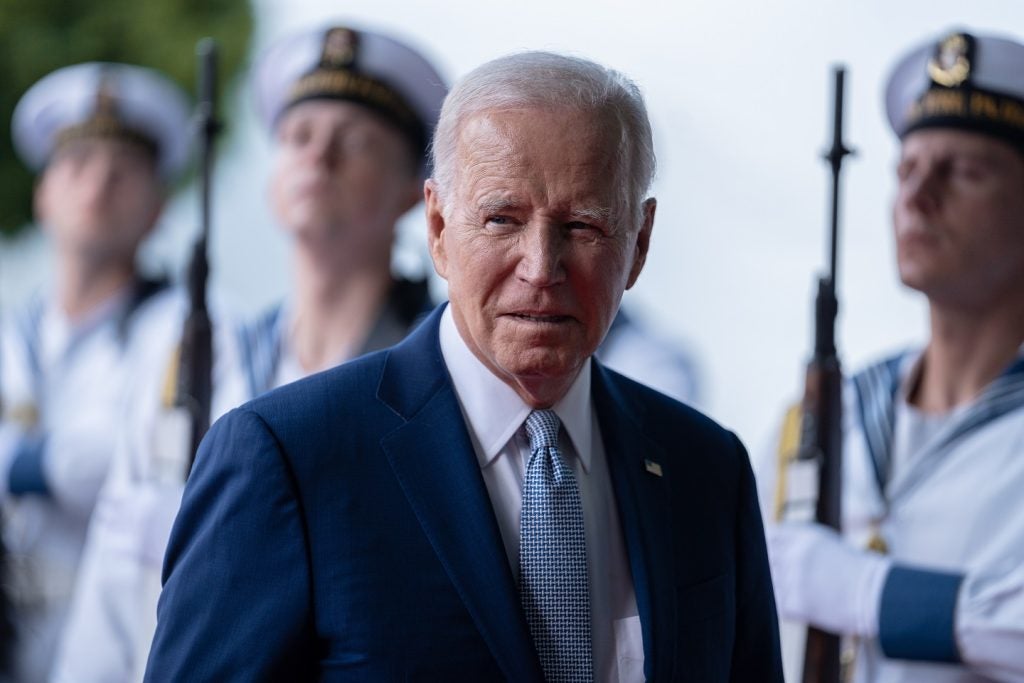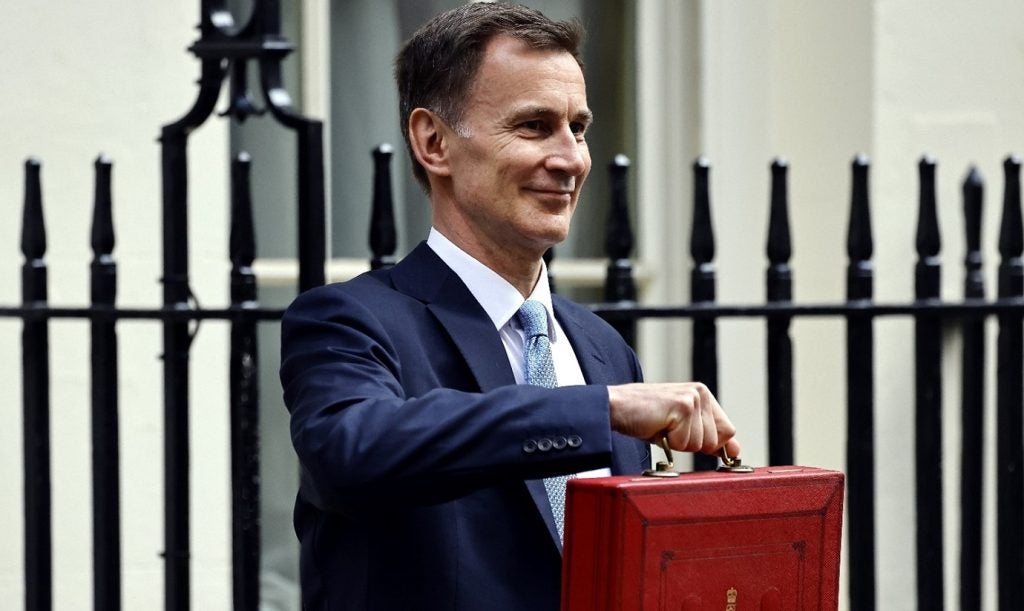
While a full budget will be released later, the White House Office of Management and Budget (OMB) proposal provides some hints about the Biden administration’s goals. with the office saying the funding ‘prioritises’ the need for the DoD to counter China as its ‘top challenge’.
In a letter to Congress, the OMB wrote: “The 2022 discretionary request provides the resources to defend America and deter adversaries while ensuring America is positioned for strategic competition; support America’s service members and their families; repair and leverage alliances and partnerships; preserve America’s technological edge; bolster economic competitiveness; and combat 21st Century security threats such as climate change.”
The 1.6% increase in spending for the Department of Defense (DoD) is part of a wider $753bn national security funding package but represents a flat budget in line with inflation.
Responding to a question about criticism from Republican lawmakers about the lack of absolute budget increase, Pentagon press secretary John Kirby said: “The Secretary, I think you saw his statement, he believes that this top-line figure will help us invest in the core foundations of our country’s strength, and it will advance departmental priorities to defend the nation, to innovate and modernise the department, to build resilience and readiness, to take care of our people, and to contribute to our alliances and partnerships, to be able to continue to revitalise those alliances and partnerships.”
US Secretary of Defense Lloyd Austin said: “The pursuit of our national security interests requires investments that target and align our priorities and capabilities to address the constantly evolving and dynamic threat landscape,
“The President’s discretionary funding request represents an important investment that will ensure the Department’s resources are matched with our strategy and policy to defend the nation and take care of our people while revitalising the key alliances and partnerships to succeed.”
How well do you really know your competitors?
Access the most comprehensive Company Profiles on the market, powered by GlobalData. Save hours of research. Gain competitive edge.

Thank you!
Your download email will arrive shortly
Not ready to buy yet? Download a free sample
We are confident about the unique quality of our Company Profiles. However, we want you to make the most beneficial decision for your business, so we offer a free sample that you can download by submitting the below form
By GlobalDataOn China, the OMB’s letter to Congress reads: “The discretionary request prioritises the need to counter the threat from China as the Department’s top challenge. The Department would also seek to deter destabilising behaviour by Russia.
“Leveraging the Pacific Deterrence Initiative and working together with allies and partners in the Indo-Pacific region and the North Atlantic Treaty Organisation, DoD would ensure that the United States builds the concepts, capabilities, and posture necessary to meet these challenges.”
The budget proposal lists several areas of effort saying the Biden administrations spending plan ‘optimises’ naval shipbuilding, supports defence research and development, ‘invests’ in long-range fires and ‘divests legacy capacity and force structure’.
The OMB letter adds that ‘maintaining’ US naval power is ‘critical’ to reassuring the US’ allies and demonstrating its ‘resolve’ to adversaries. The request proposes ‘executable and responsible investments’ in the US Navy’s fleet and continues the ongoing ‘recapitalisation’ of the US ballistic missile submarine fleet.
The request also says the investment will be made in naval remotely operated and autonomous systems as well as the next-generation attack submarine programme.
On long-range fires, the OMB wrote: “The safety and security of the Nation require a strong, sustainable, and responsive mix of long-range strike capabilities.
“The discretionary request invests in the development and testing of hypersonic strike capabilities while enhancing existing long-range strike capabilities to bolster deterrence and improve survivability and response timelines.”
The OMB letter says the budget supports DoD plans to ‘divest’ legacy systems and programmes as a way of redirecting ‘resources from low to high-priority programmes, platforms, and systems.’
The OMB letter adds: “Some legacy force structure is too costly to maintain and operate, and no longer provides the capabilities needed to address national security challenges.
“The discretionary request enables DoD to reinvest savings associated with divestitures and other efficiencies to higher priority investments.”
Commenting on the budget, White House press secretary Jen Psaki told reporters: “The focus of the plus-up on defence is meant to address a couple of issues over that period of time: promoting diversity and inclusion in the armed forces; fulfilling our commitments to military families — part of it goes to military and civilian pay increases, or that’s what proposed — is proposed; prioritising defence investments in climate resilience and energy efficiency.
“We believe it provides a robust funding level for the military forces needed to deter war and ensure our nation’s security is grounded in the administration’s Interim National Security Guidance.”







